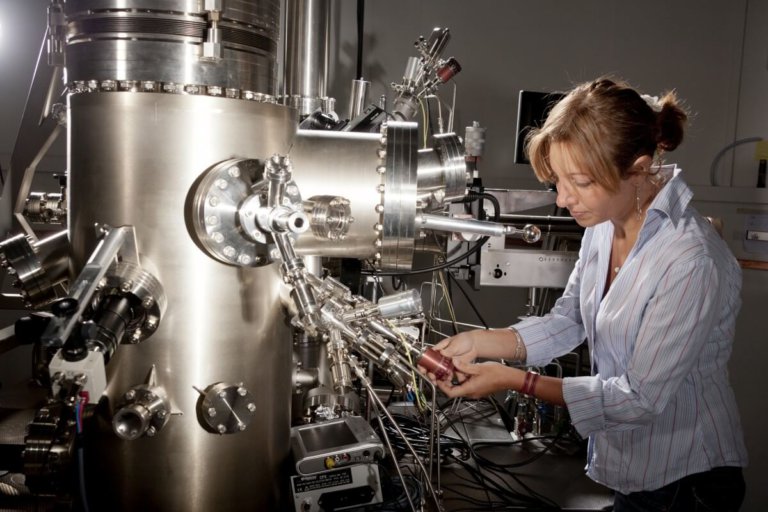
Do you have an interest in physics? Are you exploring your postgraduate options in the field? A physics degree can equip you with numerous skills that are highly appealing to employers, notes the Institute of Physics.
For instance, those engaged in research – which can be autonomous in nature – gain strong work ethics. This includes setting and meeting deadlines, learning to communicate results through a range of methods and managing a research project – giving you project planning and management skills, in addition to being responsible for managing your workload and motivation.
Aspiring physicists may want to consider enrolling in the Physics Section of the University of Geneva – a public university in Switzerland known for its quality of research and academic prowess.
The university ranks among the top institutions in the League of European Research Universities – an acclaim won in part due to its strong ties to many national and international Geneva-based organisations including CERN, the European Organization for Nuclear Research. Its domains of excellence in research include physics of elementary particles, astrophysics, cosmology, biophotonics, quantum communication, and quantum materials.
Becoming a student at the university will prove to be enriching as it offers prospective students an unparallelled experience. The university is nestled in Geneva – also known by the moniker the “Capital of Peace” – as it’s home to the European seat of the United Nations and the international headquarters of the Red Cross. The city is also home to hundreds of international organisations, such as World Health Organization, World Trade Organization, and International Telecommunications Union, making it a cosmopolitan capital where people from all the nations meet and communicate on a daily basis.

University of Geneva – Section of Physics
Master the complexities of physics with a postgraduate degree in Geneva
Enrolling in a Master or PhD degree in physics at the University of Geneva is to undertake a voyage of discovery. Students will develop unique skills in theoretical physics, elementary particles, astrophysics, quantum materials and applied physics from a faculty who are highly knowledgeable in the field.
The physics curriculum at the University of Geneva is strongly research oriented, making it an ideal location for those with a strong motivation for scientific research. What’s unique about the university is that students can expect to work side by side and obtain training from top scientists who work at the forefront of scientific advancement in all relevant fields.
To add another feather to the university’s cap, two of University of Geneva’s professors are recipients of the 2019 Nobel Prize in Physics. Further attesting to its international standing is its steady high ranking, particularly in physics, in the ShanghaiRanking’s Global Ranking of Academic Subjects 2019.
A broad spectrum of postgraduate physics degrees
The university offers five Master’s in Physics programmes in each of its research spear points. Each programme starts with two semesters of courses, all of which are conducted in English, providing students with an in-depth education in their selected fields. The third and fourth semesters are reserved for a personal research project in one of the more than 40 research groups in theoretical and experimental physics available here.

University of Geneva – Section of Physics
Master in Theoretical Physics students will develop a critical eye in identifying the most relevant aspects of physical systems and understanding our reality through mathematical modelling. Fields studied include the evolution of the universe and its most fundamental building blocks, the theory of superconductivity and the emergence of life.
The Master in Elementary Particle and Nuclear Physics introduces students to the grand mysteries of the universe, ranging from the nature of gravity and cosmic rays to physics beyond the standard model of particle physics. Meanwhile, the Master in Cosmology and Astrophysics of Particles allows students to embark on a study of the origin and evolution of the universe, its building blocks, the mechanism of inflation and the nature of dark matter and dark energy.
Those enrolled in the Master in Quantum Matter Physics will acquire a strong foundation in fascinating emergent phenomena such as superconductivity, quantum criticality, topological excitations and fractional statistics. Meanwhile, the Master in Applied Physics introduces students to quantum entanglement, ultrafast lasers and non-linear physics.
All-encompassing education
The University of Geneva has many unique appeals, including its world recognised quality of research and teaching and high teacher/student ratio, ensuring students learn in an intimate environment that fosters personal development. The university also offers intensive tutoring; close contact with researchers and professors ensure students are primed for career-success.
The university offers a truly international environment that prides itself on its international collaborations, facilitating students’ global learning and understanding of current industry practices and trends. Students will enjoy the palpable spirit of research and innovation while studying at this institution situated at the heart of Europe.
Without a doubt, the university’s physics section offers top-notch formation in physics that’s at the forefront of science and technology, providing students with the intellectual tools that allow them to solve problems within and outside the realms of physics in an autonomous, original way.
Follow the University of Geneva on Facebook, Twitter, YouTube and LinkedIn
Liked this? Then you’ll love…
Physics degrees that direct future scientists to the forefront of innovation
Become the physicists the world needs with the help of a physics degree







